
A key figure in South Auckland healthcare is warning an Omicron outbreak will expose old flaws in the home isolation system unless urgent changes are made.
It comes as the Herald can reveal performance targets within the Government's new Care in the Community model were not being hit shortly after it was implemented, resulting in positive cases leaving isolation early or isolating themselves to extraordinary lengths.
While communication within the home isolation system has since improved, there are calls to further involve and resource primary care before Omicron cases reach the thousands and New Zealand's health system buckles.
In November last year, Health Minister Andrew Little announced a new framework for home isolation after two people with the virus died at home.
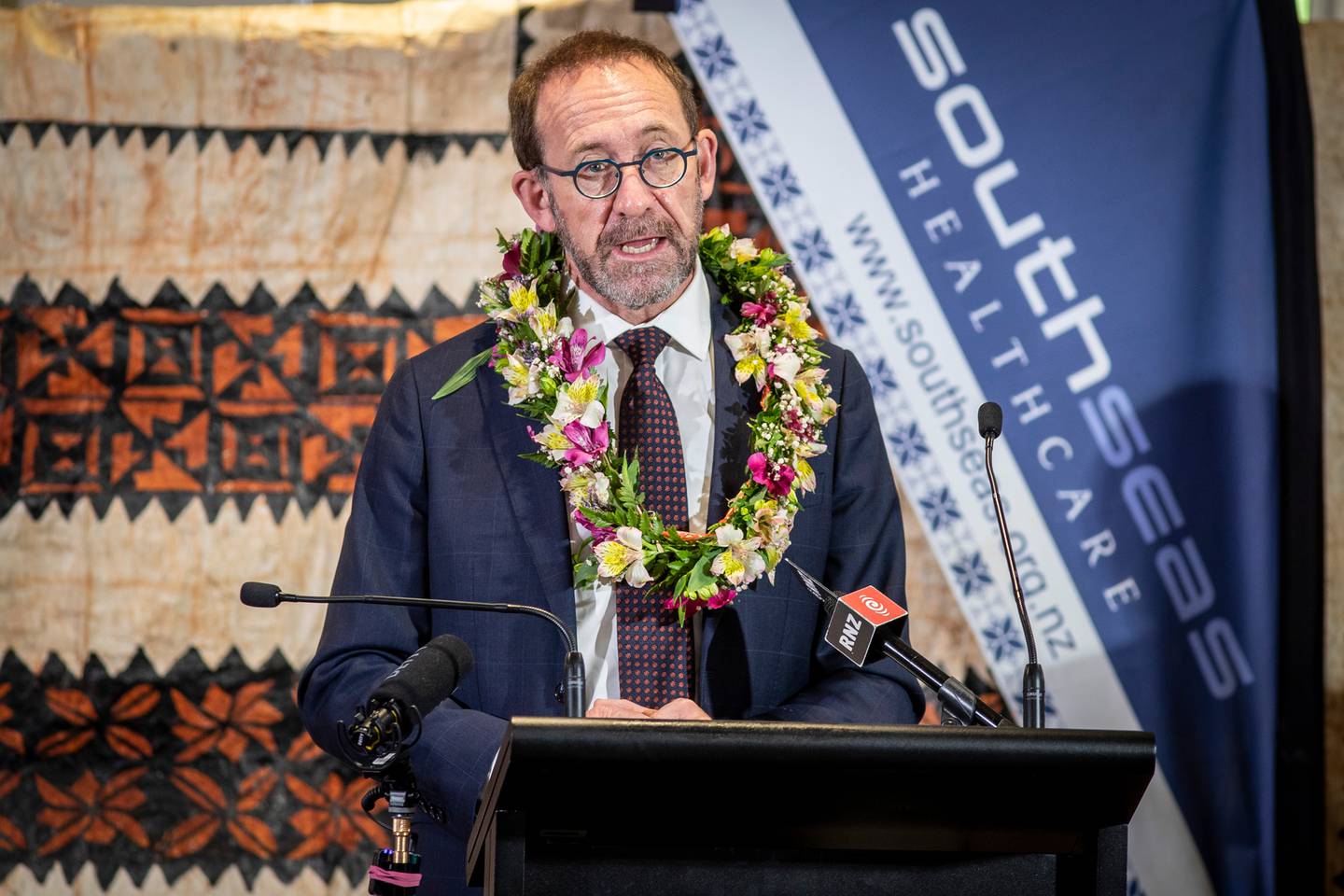
Health minister Andrew Little outlining the new home isolation framework at South Seas Healthcare in November last year. Photo / Michael Craig
A report later found the two deaths were potentially preventable and recommended earlier assessments of clinical safety, welfare needs and mental wellbeing.
Little's new model established a person with Covid-19 should be contacted by a healthcare provider - likely a local one - within 24 hours of testing positive.
The local provider would then manage that person's health and wellbeing needs, including access to food and welfare for their whānau.
The model also expected a health pack tailored to the individual's health needs to be delivered within 48 hours of testing positive.
South Auckland's South Seas Healthcare was one provider to pilot the model following its announcement.
At the time, chief executive Lemalu Silao Vaisola-Sefo welcomed the change, hoping it would eliminate recent reports Covid-positive whānau were waiting up to 10 days before being referred.
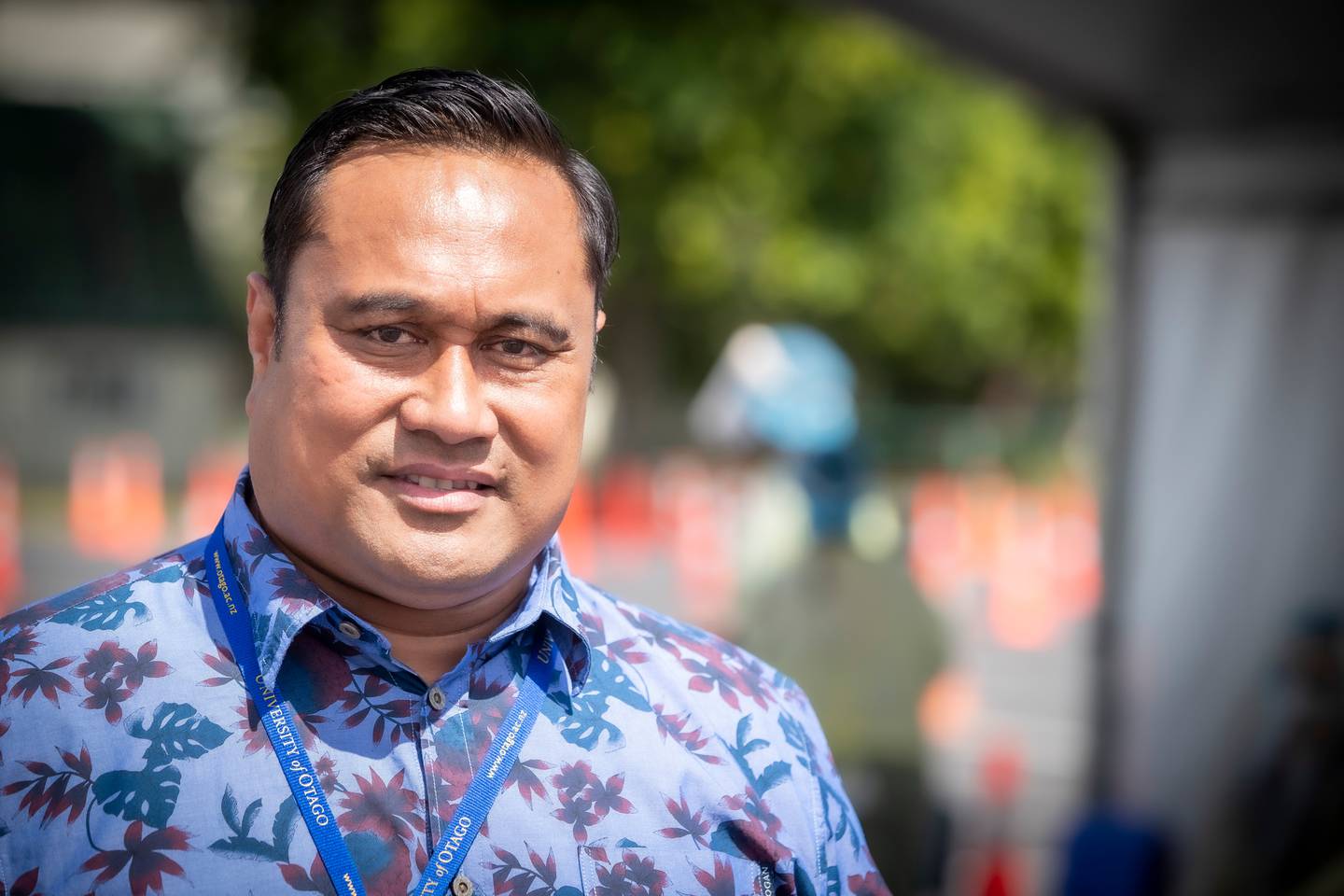
South Seas Healthcare chief executive Lemalu Silao Vaisola-Sefo. Photo / Michael Craig
However, South Seas clinical director Dr Andrew Chan Mow told the Herald the new model only partially improved the situation, with families often having to wait up to four days before being referred to South Seas.
"That was a hold-up because of how public health operates," Mow said.
"Because they work within their own environment, they didn't have anybody who was across that who could set up an external link with external providers."
Devoid of contact or support, some people infected with the virus left isolation early out of need for supplies or healthcare - risking transmission.
"It's that gap which potentially somebody could be sitting at home saying, 'Well, nobody has contacted me so I'll just do whatever I need to do'," Mow said.
In other cases, people isolated themselves far beyond what was necessary because they didn't understand appropriate isolation conditions.
"Pacific people literally [follow] health messages to the letter, so if they hear, 'You should stay at home, you're not allowed to leave home', for them - because they have families - they will take the message and think, 'I can't leave my room'," Mow said.
"It comes down to the point where they wait for family to leave the house before going to the bathroom or they're too scared to open the window, or too scared to come out and eat.
"That anxiety gets passed on to the rest of the family and the whole family is under so much pressure."
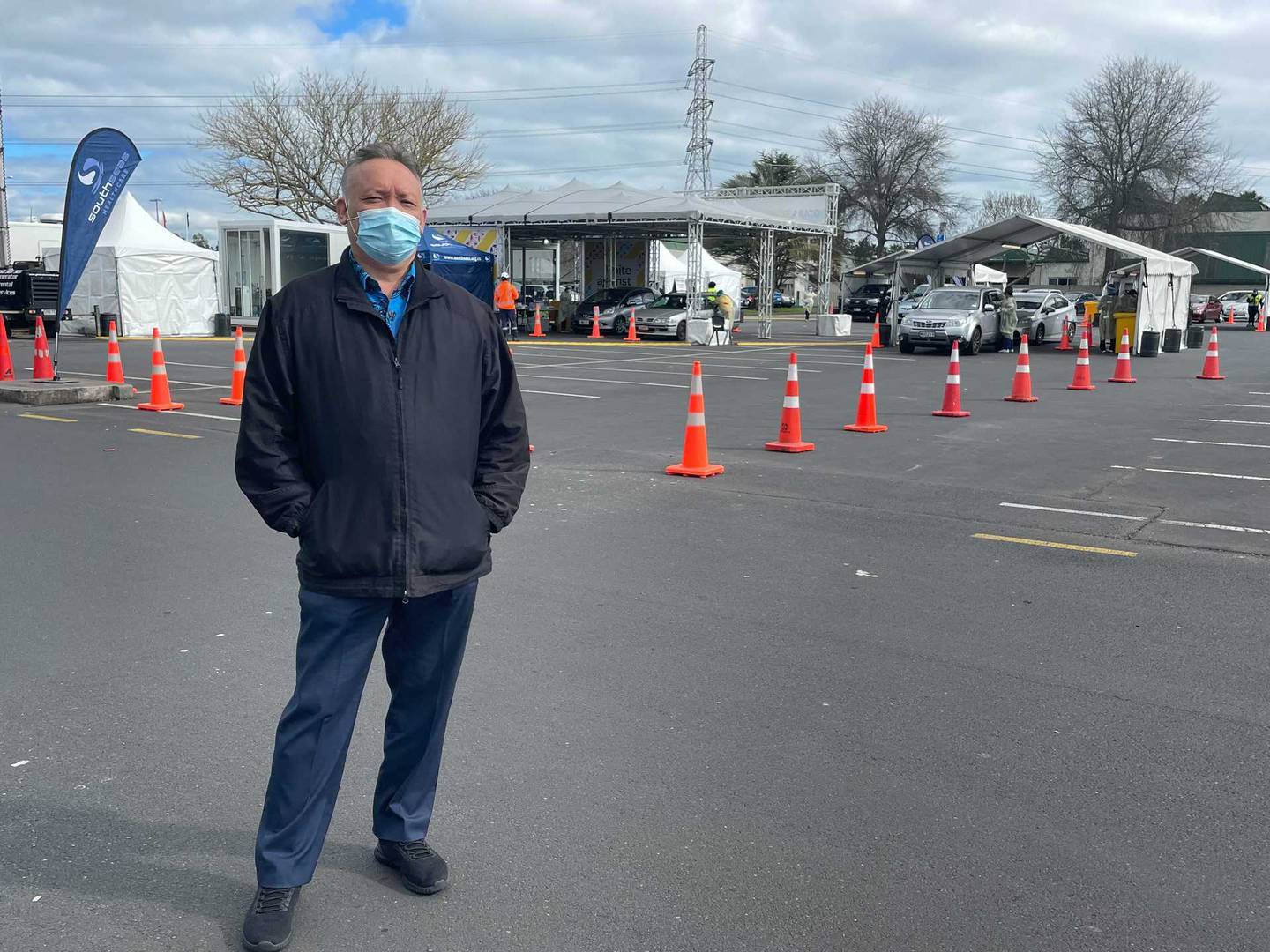
South Seas Healthcare clinical director Dr Andrew Chan Mow. Photo / Miriam Burrell
Mow said the delays came as a surprise to Government officials who reportedly weren't aware the model's targets weren't being hit.
In a statement to the Herald, Little said he wasn't aware of four-day delays in referrals.
Little said he had been advised performance targets were being met, 90 per cent were being achieved within 24 hours and 100 per cent within 48 hours.
Fortunately, Mow said the communication breakdown which delayed referrals had since been improved.
However, with Omicron cases threatening to skyrocket in coming weeks, Mow feared those problems would return.
"With Omicron and the prediction of thousands of cases, that's a different conversation.
"If [public health officials] are inundated with dozens and dozens of new cases, which means extra dozens and dozens of close contacts, you imagine where the delay is going to come before they can complete their checks before it comes through to primary care."
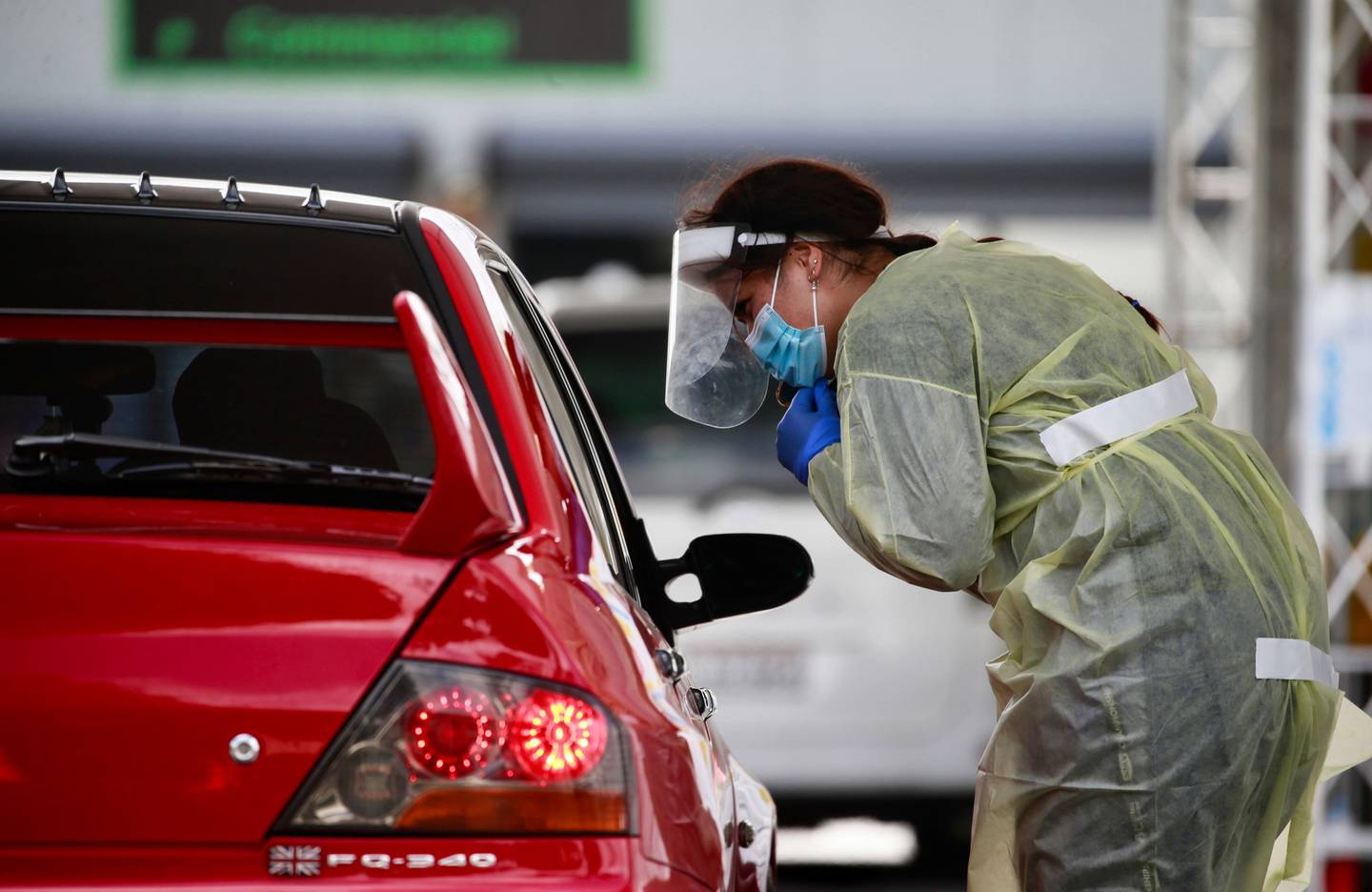
A South Seas Healthcare staffer at its testing centre in Ōtara. Photo / Alex Burton
That's prompted Mow to call for an urgent change to the referral process, advocating for a system whereby providers were notified of a positive case in their area shortly after they test positive, as opposed to after their clinical needs were assessed by officials.
"I think it is important if it's a Pacific family that as soon as [public health] hears about it, you can fast track that process of notification.
"We still respect that [public health] have to do their clinical checks but at least if we're in the pipeline early on, we can anticipate a referral coming through so we can stay a little bit ahead."
Through that approach, local providers could talk with whānau and prepare for whatever support was needed, and it also reduced the chances of people falling through the cracks due to overwhelming demand.
"If there are potentially 10 people coming down the pipeline we can mobilise, put them on our books and as soon as it hits us, we've got staff all ready to go out and deliver food parcels etcetera for that family," he said.
Asked whether the current case management system was prepared for Omicron, Mow said his experience supporting the Assemblies of God (AOG) Church of Sāmoa cluster last year - at one time the country's largest concentration of Delta cases - indicated it was not.
"If it weren't for our community partners, the churches, the community leaders, other providers, we would have never been able to close down that cluster as quickly as we did.
"If Omicron hits over here, [the AOG cluster] is going to look like a [walk] in the park, so that's a concern."
Another curveball thrown by Omicron will be its impact on the health workforce. Modelling suggested up to 25 per cent of staff could be forced off-duty because they were sick.
It was a threat Mow was well aware of, concerned how it would affect up to 70 South Seas clinical staff across four main centres.
"Primary care, for the most part, does not have the capacity to upscale in a very short period of time because we don't have the resources," he said.
"We can't just say, 'Let's add 20 more doctors', we don't have enough doctors to support those of us who need a few days break.
"If somebody comes out of one centre and infects others, you close the whole thing down."
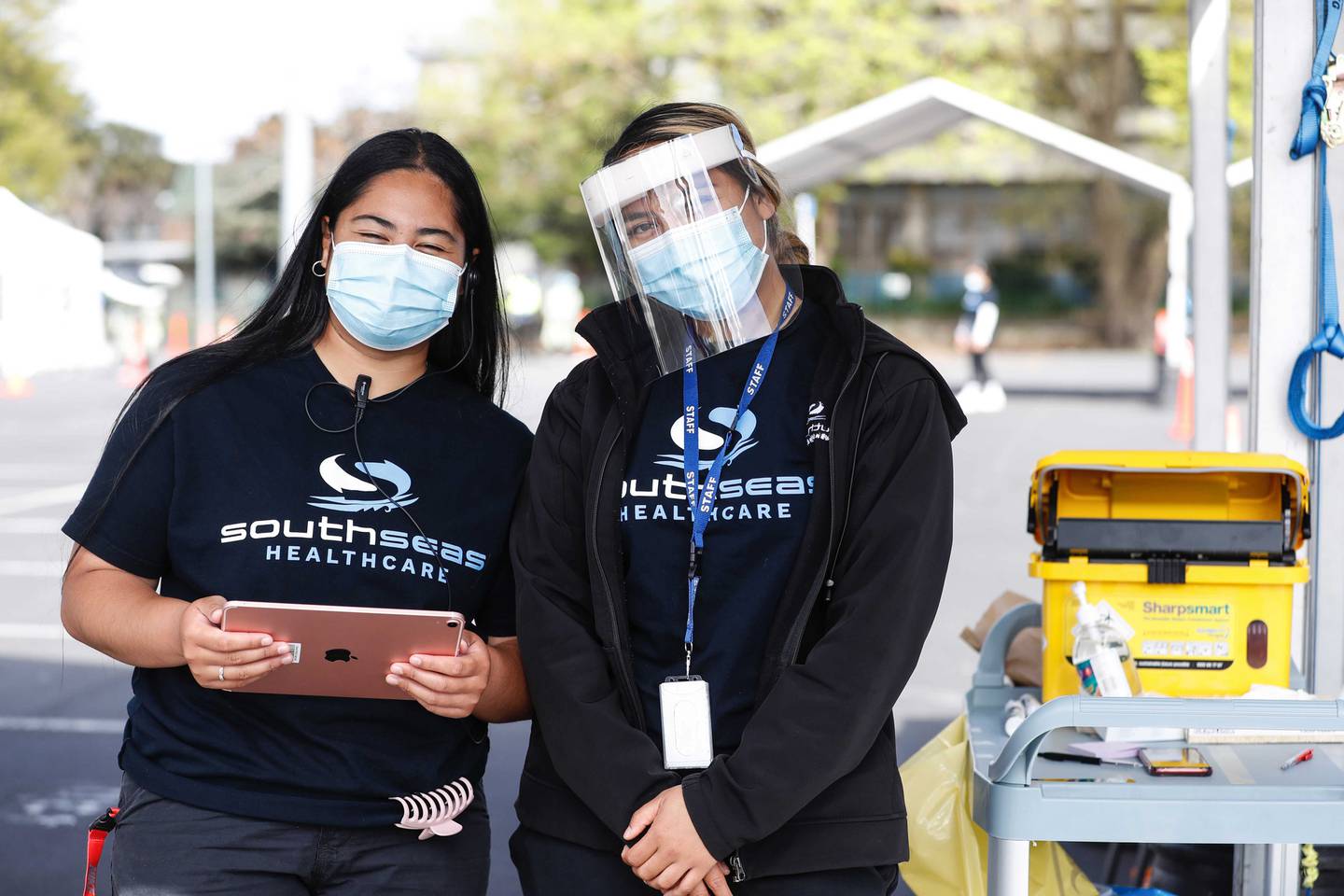
The South Seas Healthcare whānau have had to work in bubbles for weeks in preparation for Omicron. Photo / Dean Purcell
Planning was already well underway at South Seas, with staff split into bubbles, a cruel reality for people who considered each other family in more ways than one.
Above all, Mow called for communication channels to be strengthened and resources like food parcels to be sent to local providers, in the hope it would ensure support services outlasted Omicron's initial surge.
Little acknowledged home isolation would be very common once Omicron spread and urged whānau to prepare.
"... it is important that everyone thinks carefully about how everybody in the household can be kept safe if someone in their household tests positive, and everyone takes time now to plan.
"The social support provided by community organisations will continue because we know that will be important to many whanau."
Take your Radio, Podcasts and Music with you









